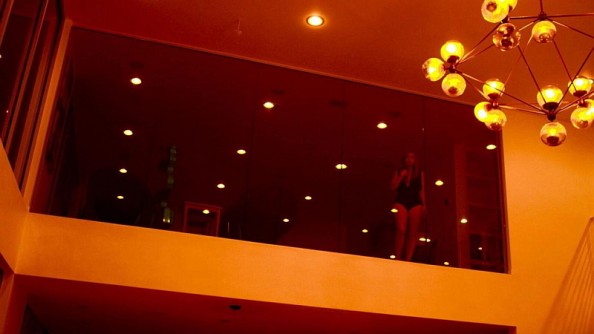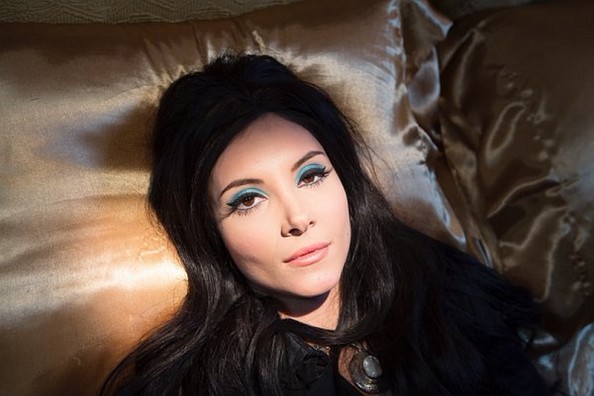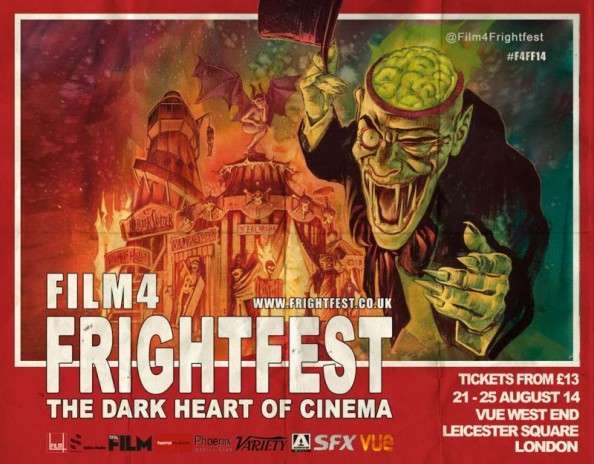
Horror Channel FrightFest 2017
24-28 August 2017
Leicester Square, London
FrightFest website
This year’s edition of Horror Channel FrightFest was dominated by stories of female survivors.
In these times of increased uncertainty and diffuse dangers, it is perhaps no wonder that stories of survival dominated this year’s edition of Horror Channel FrightFest. More specifically, it was female survival that appeared to be a recurring preoccupation in the work of the mostly male directors (only two feature films in the programme were directed by women).
The two high points of the festival, Cold Hell and Lowlife, both centred on complex, resilient and flawed women who must face deadly threats with only their own strength to rely on. In Cold Hell, directed by Stefan Ruzowitzky (The Counterfeiters), Turkish-Austrian Thai-boxing champion Özge faces daily racism and sexism in her job as a taxi driver. When she becomes the target of a serial killer, she finds that neither her family nor the police will help her. Uncompromisingly stubborn and more comfortable with punches than words, she is an engaging mix of toughness and vulnerability. Despite the implausibility of some of the plot lines, Cold Hell is exhilarating both because of its efficient, tensely paced action and its deeper emotional and political resonance.
The debut feature of director Ryan Prows, Lowlife also focuses on the plight of people who live on the margins of society, unprotected by the rule of law that most of us take for granted. An excellent ensemble piece created by a tightly knit cast and crew, it weaves three interconnected stories that follow a luchador, a pregnant drug addict and an ex-con as they confront a ruthlessly brutal organ trafficker. At the heart of the film is the relationship between two hardened and troubled women, who must face their demons and learn to join forces to defeat them. Irrepressibly joyful and horrifically brutal, like Cold Hell it uses a genre framework to pass comment on some very real and urgent issues.
Although it also appears to centre on a female survivor, Korean hit The Villainess is the exact opposite of Cold Hell. Shallow and one-dimensional, The Villainess has none of the psychological truth and social relevance of Stefan Ruzowitzky’s film, and its attempt to ground the action in personal drama only results in cloying sentimentality. Even as a straightforward action film, it is disappointing. The opening first-person corridor fight is a substandard retread of Oldboy with a POV gimmick that detracts, rather than enhances, the action; as for the climactic final confrontation, its impact is deadened by the over-reliance on CGI effects.
Less flashy and more thoughtful, Colin Minihan’s It Stains the Sand Red offered an unusual slant on the apocalyptic zombie genre, focusing on a cocaine-sniffing, booze-addled bad girl as she attempts to escape from LA across the desert. As she journeys through the scorched landscape, a strange kind of relationship starts to develop between her and the zombie who doggedly follows her, and this, together with memories of her previous life, causes her to radically reassess the choices she has made. As in Cold Hell and Lowlife, the female lead is characterized by a mixture of strength and weakness, and by an unshakeable determination to survive, her past proving to be both help and hindrance in that aim.
Interestingly, in all three films, the female survivors must fight not only for themselves, but also to protect a vulnerable dependent. Each film explores the complexities of the character’s relationship to her respective dependent, probing social expectations of women’s nurturing role from diverse angles.
One of the least savoury aspects that emerged in relation to the female survival theme, however, was the use of rape scenes to make a point in some of the films. The unnecessarily extensive depiction of sexual assault marred the otherwise thoughtful It Stains the Sand Red. The demonstration of the character’s capacity for survival could have been made just as efficiently with a shorter, less crudely exploitative scene. Even more troublingly, Andrés Goteira’s coldly smug Dhogs disingenuously highlighted the sadism of voyeuristic audiences while indulging in the nasty abuse of its female-survivor character, and in her degradation from attractive, free-spirited, sexually liberated woman to humiliated, whimpering, multiply brutalised victim. It is a point that could have been made with less misogyny, and more originality.
In contrast, writer-director Simon Rumley offered a stylish, intricate and richly faceted portrayal of a woman in meltdown in Fashionista. The obstacles that April must overcome may not be quite as dramatic as the ones listed above, but they are no less painful and destructive. A fetishistic lover of clothes, April loses sight of herself after a terrible betrayal and must fight for her psychological survival. Amanda Fuller, who was the heart of Rumley’s excellent Red White and Blue, gives an achingly raw performance, its emotional power augmented by the fragmented editing – the film is dedicated to Nic Roeg and its style recalls Bad Timing in particular. Although the concluding message is a little simplistic, overall Fashionista is an affecting exploration of heartbreak and fragile self-fashioning, shot through with disturbing intimations of the darkness that runs just under the surface of everyday life.
Virginie Sélavy


